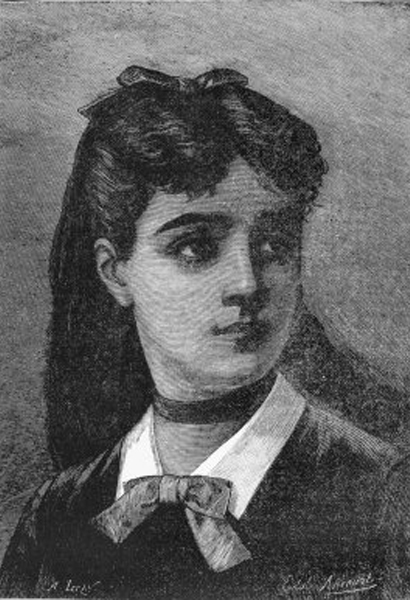

Birth: April 1, 1776
Death: June 27, 1831
Specialty: Math, Physics
Major Contributions:
Won grand prize from Paris Academy of Sciences
Significant work on Fermat’s Last Theorem
Published works on mathematics and philosophy
Image Source: Wikimedia Commons
The late 18th century was not the best time to devote yourself to a life-long study of mathematics if you were the daughter of a merchant growing up in Paris, France. In fact, for Marie-Sophie Germain it meant being forbidden by your parents to pursue this unfeminine subject to the point that her father confiscated her candles, clothing, and any heating to discourage her. She was undeterred and continued to pursue a self-taught education in number theory and calculus.
Eventually her parents gave into her passion for numbers and supported her work. Their support, however, did not change the fact that in the late 1770s women were not allowed to pursue higher education in mathematics, even at the newly opened Ecole Polytechnique. With a bit of identity theft Germain managed to obtain the lecture notes and problems for a student that had dropped out of the school, submitting the problems under his name. The faculty member supervising the course was impressed by both the great improvement of the student’s work but also the intelligence shown in the work and asked to meet this student. Sophie Germain had to confess her identity and in a turn of good fortune this professor was not concerned with her gender and became her mentor and supporter. She continued to work in mathematics corresponding with various academics that were impressed with her abilities.
Her work on Fermat’s Last Theorem is considered her most significant and her methods, including what is commonly called Sophie Germain’s Theorem, was used by others in their attempts to obtain the Academy’s prize for developing a proof of Fermat’s Theorem. Shifting her focus to physics and meeting many of the same prejudices she was able to publish “Memoir on the Vibrations of Elastic Plates” which is said to have laid the foundations for the modern theory of elasticity.
While her lack of formal training in mathematics hampered her work in the eyes of some critics she, nonetheless, had a unique insight to her approach of mathematics and problem solving. Germain also worked in the fields of philosophy and psychology, having two papers published posthumously.
Six years after her death she was awarded an honorary degree from the University of Gottingen and in 2003 the Sophie Germain Prize was created to honor French mathematicians for research in the foundation of mathematics.
Written by Angela Goad
Sources:
